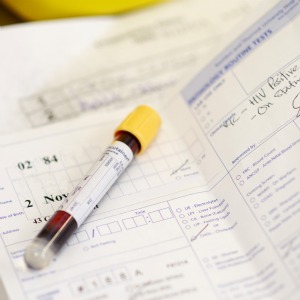Prioritise HIV testing on registration, NICE tells GPs

All young people and adults in areas of high prevalence should be offered an HIV test by their practice when registering, according to a new quality standard from NICE.
GPs should make it a priority to offer patients an HIV test when registering for the first time at practices in areas of high HIV prevalence, or when having a blood test if they haven’t had an HIV test in the last year, NICE have highlighted in a new quality standard.
The quality standard, based on published guidance, sets out priority areas for doctors to address in order to increase test uptake and improve outcomes for patients.
The standard recommends that testing should be offered to all newly registered patients in areas with a high or extremely high HIV prevalence, defined as between two and five or five or more diagnoses per 1000 people aged 15-59 respectively.
It highlights that offering the test routinely will help to embed HIV testing as a normal part of general practice, reducing stigma, boosting uptake and helping to reduce the number of late diagnoses.
The standard also says that patients in at-risk groups who test negative for HIV should be advised that the test should repeated annually. Patients with an HIV indicator condition such as hepatitis B or C, unexplained lymphadenopathy or herpes zoster should also be offered testing.
Professor Gillian Leng, deputy chief executive and director of health and social care at NICE, said: ‘There can be stigma and fear around having an HIV test. This needs to change so that HIV testing is seen as routine practice.
‘This new quality standard sets out clear, practical steps to help encourage and increase the uptake of HIV testing.’
The quality standard comes as a study in the Lancet HIV earlier this year found routine testing in areas of high HIV prevalence to be cost effective at thresholds set by NICE and to increase diagnosis rate.
Quality standard in full
Young people and adults attending an emergency department or admitted to hospital in areas of high or extremely high HIV prevalence should be offered an HIV test
- Offering HIV testing more routinely in hospitals will help embed the test as a key component of routine practice
In areas of high or extremely high prevalence, young people and adults should be offered an HIV test if they are either registering at a practice or have not had an HIV test in the last year and are having a blood test
- Offering an HIV test routinely in general practice will help to boost test uptake and facilitate earlier diagnosis and treatment
Young people and adults diagnosed with an HIV indicator condition should be offered an HIV test
- Testing patients who have an indicator condition means that serious consequences of HIV infection can be avoided
Young people and adults in at-risk groups who test negatively for HIV should be advised to test again annually.
- Regular HIV testing will help to reduce late diagnosis, as patients may remain at risk even if they test negatively
Patients who may have been exposed to HIV by someone newly diagnosed with HIV should be offered a test.
- These patients are at high risk of being infected and offering them a test as soon as possible will reduce the risk of further transmission
Visit Pulse Reference for details on 140 symptoms, including easily searchable symptoms and categories, offering you a free platform to check symptoms and receive potential diagnoses during consultations.









